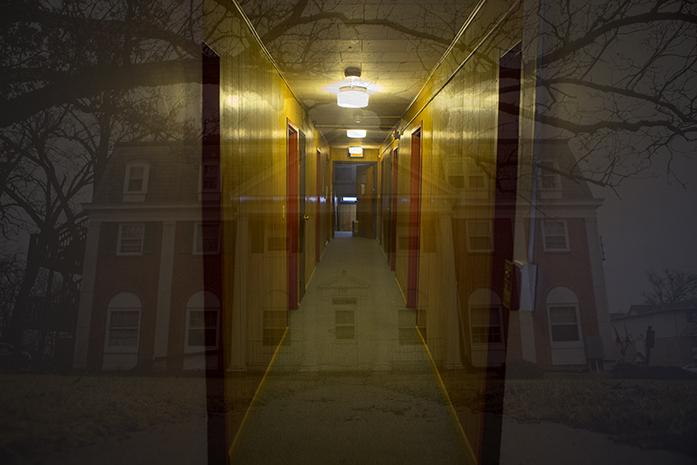Iowa City will lose one of its affordable housing options for low-income residents.
By Kit Fitzgerald
With a large number of University of Iowa students willing to pay higher rent for housing, low-income residents are running out of places to live.
A recent example of this is a building at 332 Ellis Ave. that had rented rooms but now is being bought by the fraternity Pi Kappa Phi.
The building is rundown, and the owners had to sell in order to make the necessary renovations, said Adam Brantman, a co-owner of the facility.
The building, managed by the Governor Group, had been occupied by 12 tenants. The Governor Group worked with the Shelter House, the Iowa City homeless shelter, to bring the occupancy up to 25 tenants.
To make room for the fraternity, the leases of the current tenants will be terminated in February. Brantman said the Governor Group has offered relocation assistance to the tenants, including discounted rates to live in other units owned by the Governor Group, paying tenants $550 for relocation costs, and in some cases, physically helping the tenants move into new residences.
Pi Kappa Phi had resided down the block, at 202 Ellis Ave., for 12 years. It had leased that building from the Acacia fraternity, which plans to move back into the building in this fall, prompting Pi Kappa Phi to search for a new house.
The fraternity reached out to the Governor Group, which had not put the house up for sale.
Greg Buehner, the director of housing acquisition for Pi Kappa Phi Properties Inc., said the house was ideal because it was originally built as a fraternity house.
“What attracted me was the historical nature of the building, and that we’re going to be using it as, a fraternity house,” Buehner said. “It’s what it was built for.”
The Ellis Avenue location had several violations of housing requirements and codes, Brantman said, and the building will be renovated before the fraternity moves in.
Jacob Simpson, the UI Student Government City Council liaison, said Iowa City doesn’t really have many affordable housing options at all.
“We have so many students, and they drive the demand for housing up,” Simpson said. “The problem is the supply is not increasing at the rate that would decrease housing costs.”
With affordable housing on the decline, both the Governor Group and the City Council are looking for solutions.
Simpson said the City Council released and voted on the Affordable Housing Action Plan in the fall.
The main feature of this plan creates incentive for developers to establish low-income housing and affordable housing alongside more expensive units.
“If [the developers] want to develop a 10-story building on a piece of prime real estate, the city will help subsidize some of the costs of that building so long as a certain number of affordable housing units are developed in that building,” Simpson said
Buehner is no stranger to the housing complications in Iowa City. He said students tend to rush to the East Side, the 2008 flood added to the problem, and most of all, more students attend the UI every year.
“What I think the City Council needs to look at is the degraded, run-down housing in Iowa City,” Simpson said. “We need taller and denser buildings. That will increase the supply and decrease the cost of housing.”



